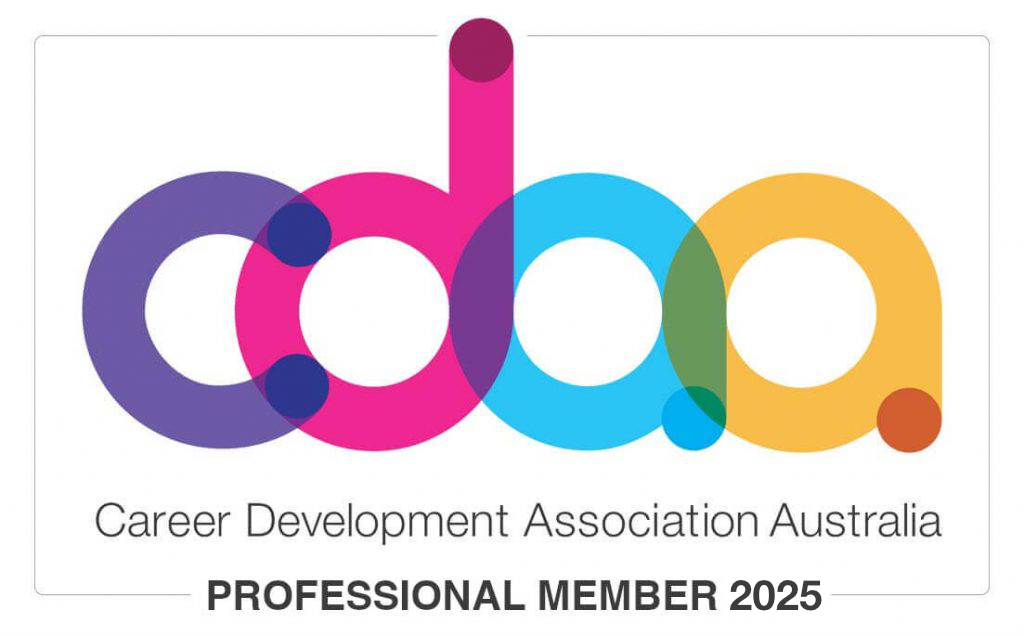IT MAKES GOOD CAREER SENSE TO BELONG TO AN ASSOCIATION OR BODY LINKED TO YOUR PROFESSION OR TRADE
In Australia today, there are hundreds of professional associations and industry bodies representing the myriad occupations being undertaken around the country. In this article, the terms
‘professional association’, ‘professional organisation’, ‘professional body’ and ‘industry body’ will be used interchangeably in making points about the benefits which membership can confer.
When I reflect upon my own career, I regret not joining a professional association earlier, and by that I mean when I was a student. At that time, career development did not enjoy the degree of prominence on campus which it does today. I was barely aware of such organisations’ existence; the thought of joining one was even further from my mind. Had I been savvier, I think I may still have assumed (wrongly) that they were all for ‘learned professionals’, i.e. the upper echelon, not a novice like me. In my experience, some people still hold the view that it is necessary to be of a certain professional standing in order to join or become involved with a professional organisation. This is not always the case.
Professional organisations can vary considerably – in size, governance, objectives, accessibility, membership levels and member benefits. Because of this, it’s important to do your research to find the organisation most suited to your current needs. This includes being aware of standards and what is expected of you as a member at the membership level for which you are applying.
There are many potential benefits to membership; the following are just a few of them:
- Ongoing learning, including access to professional development and training. Conferences, workshops, webinars, and newsletters – the list is long. Some associations, especially those with a regulatory role, also require their members to undertake continuing professional development. This is good. Embrace it – find out what you don’t know and need to in order to be better at what you do. It is also worth remembering that many leading bodies work closely with educational institutions to ensure their graduates are meeting the changing needs of that profession or trade.
- Opportunities to shape the future direction of the industry. Are you keen to advocate for change related to your profession? As a member, you might have opportunities to benefit from or contribute to policy formulation, research and the strategic direction of the association, or more broadly, the profession. Not only will you acquire specialist knowledge, but being proactive may enhance your personal and professional reputation within the industry.
- Networking and collaboration. Networking is very important and is undoubtedly one of the main reasons people join industry bodies. Remember, however, to collaborate too. What can you do to help? Some suggestions include volunteering a few hours of your time at an event, joining a committee and/or writing an article for the organisation’s publication/s.
- Mentoring or similar programs. Having managed successful mentoring programs, I can testify to the many career-enhancing benefits they can provide to participants (mentors and mentees) and to the positive flow-on effects for the participants’ workplaces. Having access to a mentor can be life-changing for a mentee. If a mentoring program or similar is offered by an organisation, then arguably it could be considered reason enough to join that organisation! More industry groups should embrace mentoring programs for their members.
- Exposure A great deal can be learned by observing others in your profession or industry; membership can allow just such an opportunity. Are there members on whom you would like to model yourself? If so, speak to them. What they tell you may well help you formulate your own career path/lead to other benefits for your career.
- Collegiality and inclusiveness. Regardless of how old you are or the amount of experience you have in your field, getting to know others with whom you have shared interests is worthwhile for all parties. Most people benefit from a sounding board occasionally; when there is a matter about which you could use some advice, you may find a member with whom you can speak confidentially. Show your integrity and respect professional and personal differences of opinion, just as you would at work. Be realistic about what you hope might be achieved from your interaction/s.
- Member discounts on a variety of products and services. Don’t forget this one. Insurance, publications, holidays, loans, education, and even entertainment can attract discounts when you become a member. Indeed, these savings might pay for the cost of your membership!
- Job opportunities. Being part of a reputable industry body can help unlock hidden job opportunities; it can also provide opportunities to broaden your client base.
- Professional acknowledgement. Belonging to an official association adds value to your résumé and professional profile.
- Employer support. Could your employer pay for your membership? Put your case forward, as the best employers recognise the potential benefits of their staff belonging to a professional organisation and may be willing to support your membership. Tax deductions are possible too.
Still studying at university or TAFE? Recently graduated?
If either of these apply to you, then you have all the more reason to become a member. Belonging to a professional organisation is a great way to complement your formal learning with practical knowledge. Moreover, joining an organisation early is likely to pay dividends for your career, assuming you take a proactive approach to your membership, of course.
Most professional bodies offer generous student discounts. Shop around. As well as the points outlined above, the list of potential membership benefits is substantial. There will usually be plenty of opportunities to meet people working across your profession or industry. You may learn about prospective companies for which to work, current challenges, future directions, niche areas within the profession, job/internship opportunities here and overseas, and so on. If you perhaps don’t feel comfortable attending member events on your own, ask a friend to come with you. Try not to let a lack of confidence hold you back – you’ll soon get to know other members, but only if you attend.
Keep in mind that an increasing number of professional associations have a youth chapter. The Society of Construction Law Australia (SOCLA), for example, has a Young Constructors Committee, co-convened by two young professionals who also initiated the nation-wide mentoring program which I manage. The program has grown threefold since its inception last year; in part, a reflection of a growing awareness among young people that they wish to belong to a professional organisation which offers a mentoring program.
Remember: senior members of a profession often want to engage with young people and those studying or new to the profession. It gives them a fresh perspective, a chance to give back and an opportunity to reflect on their own career path.
Are you contemplating a career change?
Professional organisations are a great source of information about a profession or trade, from finding out about industry education or training, regulation, professional requirements to employment data. It makes career sense to utilize this.
Finally, the best organisations are innovative and responsive, catering as much as possible to the diverse and changing needs of their members.
Helen Green, Director, Career Confident
Helen is a qualified careers consultant and professional member of the Career Development Association of Australia. She manages her own careers consulting practice in Melbourne’s south east.







